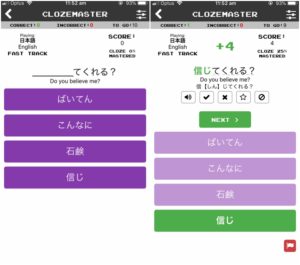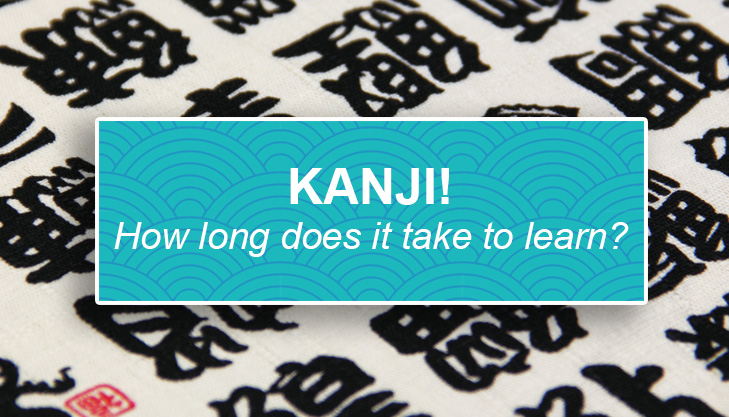Jumping in to learn a new language can be addictive… but the reality is that most people just don’t have the time or bank accounts to run off to a new country and totally immerse themselves to study so they fall into learning Japanese casually. As much as I would love to drop everything and head to Tokyo, I think my boss wouldn’t be super cool about continuing to pay me if I did. So is it actually worth bothering to study Japanese at all if you can only devote time casually?
Learning Japanese casually is absolutely still worth the effort so long as you manage your expectations and prioritise what you want to get out of your studies.
Studying using apps in your spare time won’t get same results as someone who is studying full time at a language school but with some tips on focus you can make casual learning work for you and achieve things at your own pace! I have been studying casually on and off for many years and these are the things that have worked well for me.
Setting realistic study goals and prioritising my interests.



As much as I would like it to, watching 30 minutes of anime a week for a year is not going to make you fluent or even conversational in Japanese. According to the U.S. Department of State, Japanese is one of the hardest languages for native English speakers to learn and they recommend 2,200 hours of class time to become fluent! If you were studying 8 hours a day, 5 days a week that’s still over a year of learning.
So the first step is to acknowledge that you aren’t going to magically know everything immediately. Prioritise what language skill is important for you and how much time you want to spend then go from there.
The 4 main learning areas are reading, writing, listening and speaking.
So what do you want to do with your Japanese? Do you want to read manga without waiting for translations? Want to be able to talk to Japanese friends online? Watch Japanese game shows or dramas? Speak easily to staff at restaurants when you travel?
Most teaching resources will tell you that you need to do EVERYTHING and while that would be ideal, if you only want to read or listen then there’s not much point wasting hundreds of hours practicing your kanji stroke order for writing. Decide what’s important to you and what you find interesting and stick with it.
The biggest hurdle with casual learning is being discouraged when feels like you aren’t making progress. A really quick way to quit is to be stuck doing something over and over again that you hate.
It’s important to understand that studying casually is more like a hobby with the added benefit of knowing a language at the end.


While people who are studying full time can treat it as a job and power through when they get bored or uninterested, it’s a lot harder to force yourself to do something boring when it’s eating into the little free time that you have. So try to keep it fun and don’t beat yourself up if you’re not progressing as fast as you want!
Use the wide variety of language learning tools to avoid getting bored.
The best way to make sure you aren’t zoning out is to change things up enough so you don’t stagnate. Traditional study is boring and your time is limited so you need to study smarter not harder. If you can’t be surrounded by native speakers you have to get clever about how you consume the language and learning passively is just as important as doing it actively.
Here are some more fun ways to add Japanese to your every day life without draining your brain:
Japanese Mobile Apps



Playing Animal Crossing Pocket Camp in Japanese is super fun!
Do you enjoy playing phone games? I too like to waste time aligning items by colour and giving ungrateful animals fruit. Brainless games recharge me and by switching the language to Japanese on simple games you can passively learn some very useful kanji and phrasing. Some apps like Neko Atsume and Animal Crossing Pocket Camp allow you to do this in game while others require you to download from the Japanese app store.
Reading Japanese forums or sites
Enjoy sewing or gaming? Find a Japanese forum specific to your interests and read along with the posts. This is a great way to pick up words and jargon specific to your hobbies. It’s easier to talk about things you like in other settings when you have the correct words for them!
Keeping a diary
Full disclosure: I suck at this. I find myself being bored and feeling like every day I write crap like “Today I got up and went to work. It was boring. I had chicken for lunch etc.”. The problem for me here is that I am terrible at writing a diary in English too. I’m not a descriptive person, I don’t have an inner monologue and my life is boring. That said, other people love keeping a diary. At the start you might find it easier to write out line by line in English and then translate to Japanese, this is a great way to find new words and grammar as you will be expressing yourself at a more complex level in English and needing to find the Japanese to match.
Reading Manga
If reading is a focus of yours then I recommend reading low level manga as soon as you possibly can. The plots are generally simple and if you’re stuck on words you can either go the full way of looking things up or just rely on the artwork. Most manga aimed at younger kids can easily be understood only by looking at the pictures so even if you don’t want to look up kanji you can get the gist. The more times you see kanji, the easier they are to memorise later.
Watching TV
I love having a Japanese morning show on while I eat breakfast. They often have fun segments (the most popular parfait flavours in Tokyo), there are generally subtitles so if you want to read for context you can and the language is often simple and polite. Personally I prefer watching light shows rather than the news because they hold my interest. A lot of the time I don’t want to watch the news in English either and it’s not any less depressing in Japanese!
Japanese Learning Apps



Clozemaster is great for testing grammar
This is a massive one as there are SO many apps for helping to learn Japanese. Many rely on basic SRS memorisation flash cards and teach vocabulary and kanji. This is great but honestly can get super boring very quickly so I suggest mixing them together with other methods. Don’t beat yourself up if you don’t feel like doing 500 flash card reviews a day.
Community Forums
This is a tricky one because often community forums for learning Japanese don’t actually teach you much Japanese. Some of them are fantastic but often I find that these kinds of communities are mostly small social networks that are more about chatting than learning. That’s great if you find it motivating to have people who are also learning to be accountable to but don’t expect much in terms of language acquisition.
Chatting in Japanese with Friends
This obviously assumes you know people who speak Japanese. If you’ve got someone you’re learning with (or a community as above) then it’s always fun to do days where everyone speaks only in Japanese. Likewise this works with real life friends or even better if you know any native speakers. There are lots of apps and websites to connect you to language partners but the biggest hurdle I’ve found is that it can be hard to keep conversation flowing when you don’t have any similar interests OTHER than learning the language. If you’re outgoing this might be right up your alley though.
I will be expanding on all of these in more detailed future posts but the point is that there are SO many ways to use Japanese online and in passive settings these days that even when you don’t feel like actively learning you can still get some simple study in!
Figure out what you’re missing by learning casually and go after it actively



Being a casual student can be a bit demoralising as it sometimes feels like everyone you see has progressed further than you. It can be hard not to compare yourself with others you see online but remember that all progress is good progress! The most important part is not to forget why you want to study in the first place. Your time might be spent casually but you need to actively chase your goals!
Realistically, studying Japanese casually is probably the best approach for most people. The key to being successful at it is to decide how you want to use the language and prioritise learning those areas. If you can use the massive number of great tools available to work with your attention span instead of against it, studying will become something enjoyable and you’ll be able to maintain stamina long term instead of becoming bored and quitting before you see results. I have personally found that choosing to study casually offers a better long term result as the chances of burning out are a lot lower.
Happy learning!



